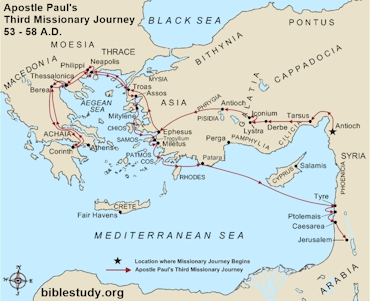Although unquestionably an eloquent speaker, Apollos had a major flaw that was not necessarily of his own making. He deficiency was that he only knew about Jesus through the preaching of John the Baptist.
Now a certain Jew named Apollos, an Alexandrian by birth, an eloquent man who was skilled in the Scriptures, came to Ephesus.
He had been instructed in the way of the Lord; and being fervent in spirit, he spoke and taught accurately the things concerning the Lord, knowing only the baptism of John. (Acts 18:24 - 25, HBFV).
Aquila and Priscilla decide to help Apollos by giving him more complete information regarding the Messiah. They introduce themselves to him and are soon filling in all his gaps of knowledge in the "way of the Lord" (Acts 18:26).

Apollos, after coming to a much broader understanding of the gospel message, expands his service into Achaia. The brethren in Ephesus even write a recommendation letter encouraging other disciples to accept and listen to what Apollos has to say. Wherever he goes he preaches about the Messiah. His ability to explain and expound the scriptures is such that the Jews cannot counter his arguments that, indeed, Jesus is the Messiah of man.
The apostle Paul ultimately meets Apollos and considers him a fellow preacher of the gospel.
The next few times Apollos is mentioned in the Bible is in the book of 1Corinthians. In 1Corinthians 1 Paul chastises the Corinthian church for their party spirit of aligning themselves behind particular preachers like him, Apollos or Peter.
When someone says, "I am of Paul," and another one says, "I am of Apollos," are you not carnal? Who then is Paul? And who is Apollos? They are but ministers through whom you believed, even as the Lord gave to each one . . .
Whether Paul, or Apollos, or Cephas, or the world, or life, or death, or things present, or things to come - all are yours; (1Corinthians 3:5 - 6, 22, HBFV).
Paul, in his closing remarks to the church at Corinth, states that his fellow laborer is not all that eager to revisit them (no doubt due to the party spirit he saw for himself when he visited - see Acts 19:1).
Now, about brother Apollos. I have often encouraged him to visit you with the other believers, but he is not completely convinced that he should go at this time (1Corinthians 16:12).